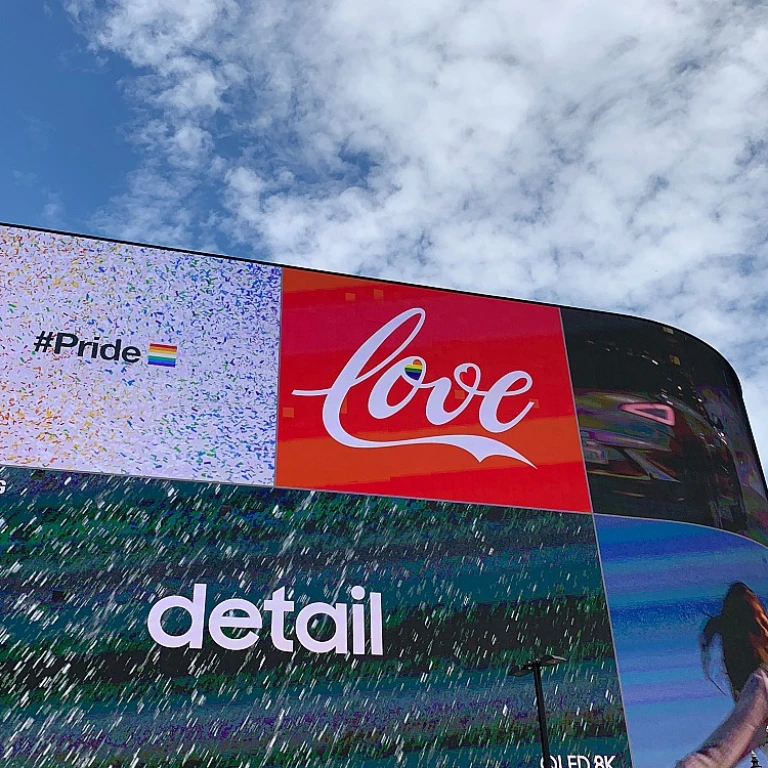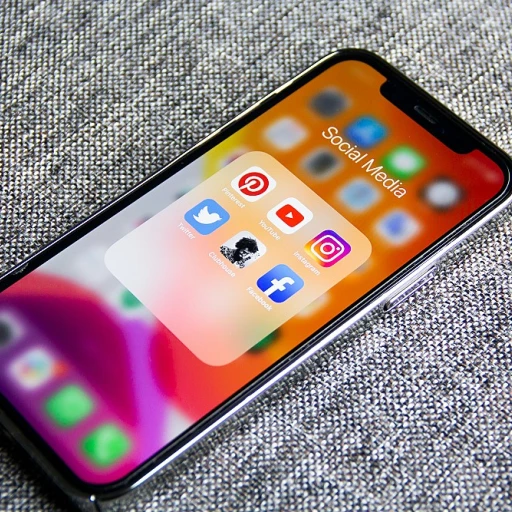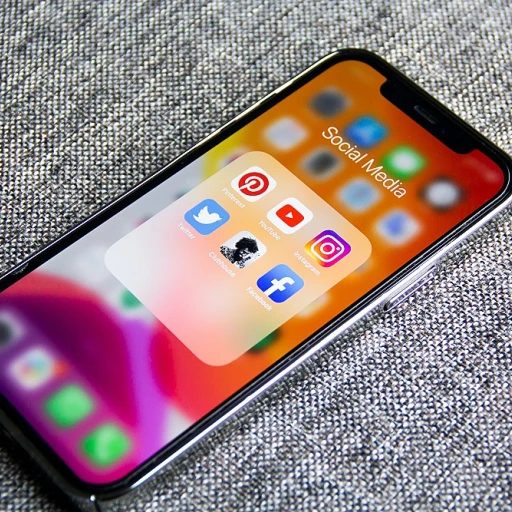Understanding TikTok's Influencer Contracts
Decoding the Essentials of Influencer Agreements on TikTok
Influencer marketing through TikTok is a dynamic domain that continues to evolve. For brands looking to capitalize on TikTok's diverse and engaged user base, understanding the intricacies of influencer agreements is critical. These contracts are not just simple transactional documents but pivotal elements that define the terms of partnership, the scope of content, and the nuances of intellectual property rights. First and foremost, a TikTok influencer contract usually addresses the specifics of the marketing campaign. This includes the type of content the influencer will create, the expected engagement metrics, and the intended reach among their followers. For businesses, this means crafting agreements that align with their brand's goals and target audience. Legal considerations also play a crucial role in these contracts. The agreements must comply with regulations in the influencer's country of operation and potentially internationally, to avoid complications like the TikTok ban that affected influencer campaigns in some regions. According to an insightful article, it's essential for brands and influencers to understand not just the legal framework but also the cultural nuances that can impact the perception of a campaign. Influencer rates are another key component of these agreements. They are typically influenced by factors such as the influencer's reach, their engagement levels with their audience, and sometimes the exclusivity of the products or services being promoted. Negotiating these terms requires a clear understanding of the market dynamics and the business objectives. Furthermore, enforcing intellectual property rights is a significant facet of influencer contracts. Both brands and influencers need to agree on how the content will be used beyond its initial release on the platform, ensuring both parties retain appropriate rights. As the role of AI in SEO strategies becomes more pronounced, brands can utilize analytics to optimize these agreements. This integration not only enhances the strategic planning of influencer campaigns but also enriches the partnership between brands and TikTok influencers.The Role of AI in Modern SEO
The Transformative Impact of AI on SEO
Artificial intelligence has become a pivotal force in the realm of search engine optimization (SEO), revolutionizing how brands and businesses engage with their target audiences. The integration of AI in SEO is not just about enhancing search rankings; it’s about creating a more personalized and efficient experience for users and brands alike.
AI technologies, such as machine learning and natural language processing, are now being leveraged to analyze vast amounts of data, enabling brands to better understand user behavior and preferences. This capability is crucial for influencer marketing, where understanding the audience is key to successful campaigns. AI can help identify the right TikTok influencers whose followers align with the brand's target audience, ensuring that the marketing campaign resonates effectively.
Enhancing Content Strategy with AI
AI-driven tools are instrumental in content creation and optimization, allowing brands to tailor their messaging to specific demographics. By analyzing social media trends and user interactions, AI can suggest content topics that are likely to engage audiences, thereby increasing the chances of higher engagement and conversion rates. For instance, a brand looking to collaborate with a TikTok influencer can use AI to predict which types of content will perform well, thereby optimizing their influencer campaigns.
Moreover, AI aids in monitoring the performance of influencer agreements and contracts by tracking metrics such as audience engagement and reach. This data-driven approach ensures that brands and influencers can adjust their strategies in real-time, maximizing the impact of their collaborations.
Addressing Legal and Ethical Considerations
While AI offers numerous benefits, it also raises important legal and ethical questions, particularly concerning intellectual property and data privacy. Brands must navigate these challenges carefully, ensuring that their use of AI complies with legal standards and respects the rights of influencers and their audiences. This includes understanding the nuances of influencer contracts and agreements, which often involve complex negotiations around property rights and influencer rates.
In conclusion, AI's role in modern SEO is multifaceted, providing brands with powerful tools to enhance their marketing efforts on platforms like TikTok. As AI continues to evolve, it will undoubtedly shape the future of influencer marketing, offering new opportunities for brands to connect with their audiences in meaningful ways. For more insights into how AI is influencing SEO, you can explore the transformative impact of AI on various industries.
AI-Driven SEO Strategies for Social Media Platforms
Leveraging AI Tools for Optimizing Influencer Impact
Artificial intelligence has emerged as a pivotal force in enhancing search engine optimization (SEO) for social media platforms like TikTok. It equips brands with novel strategies to amplify their influencer marketing campaigns and maximize their reach. When integrating AI into influencer strategies, businesses can analyze and predict trends, tailor content to fit target audiences, and bolster engagement through data-driven insights. AI tools can evaluate vast data sets to identify patterns in how content resonates with users. This means that brands can better align their campaigns with users' preferences, optimizing content creation with influencers to capture the attention of their intended audience. Thus, knowing what appeals to the target audience becomes more precise, enabling brands to adjust their strategies in real-time. Moreover, AI-driven SEO facilitates the optimization of TikTok influencer content by improving hashtag strategies and enhancing content visibility. It ensures that TikTok influencers, even those new to a campaign, are more adequately targeted towards the right audience, thereby boosting reach and engagement. Through intelligent algorithms, AI can assess which media types and length of content perform optimally within specific demographics, allowing content crafted with influencers to maintain relevance and engagement. As influencer marketing becomes increasingly data-centric, AI stands as a critical ally, providing insight into intellectual property trends and influencer rates to forge effective influencer agreements. Ultimately, AI-driven SEO strategies not only propel brand visibility on platforms like TikTok but also refine how influencer campaigns are executed. By leveraging AI, businesses are better positioned to optimize their influencer outreach, ensuring their product or service promotions resonate with desired consumers. It is vital to consider ethical dimensions and possible biases that might arise in AI applications. For insights into crafting equitable search engine strategies, consider exploring tackling bias in AI strategies.Challenges in AI-Driven SEO
Overcoming the Hurdles in AI-Powered SEO
As AI continues to integrate into search engine optimization, businesses and influencers face several challenges. One of the primary issues is the dynamic nature of AI algorithms. These algorithms, while powerful, often evolve rapidly, making it difficult for marketers to keep up. This constant change requires brands to continuously adapt their strategies to maintain effective engagement with their target audience.
Another significant challenge is the management of intellectual property rights. When AI tools are used to generate content for marketing campaigns, questions arise regarding the ownership of that content. Influencers and brands must clearly define these rights in their influencer contracts to avoid potential legal disputes.
Moreover, AI's reliance on data can lead to biases that affect marketing outcomes. For instance, if the data used by AI tools is not representative of a diverse audience, the resulting content might not resonate with all segments of a brand's target audience. This can be particularly problematic for TikTok influencers who aim to engage a wide range of followers across different demographics.
AI's impact on influencer marketing also extends to influencer rates and agreements. As AI tools become more sophisticated, they can analyze influencer engagement metrics more accurately, potentially altering how influencer rates are determined. Brands and influencers must navigate these changes carefully to ensure fair compensation and effective collaboration.
Lastly, the implementation of AI-driven SEO strategies on social media platforms like TikTok presents unique challenges. The platform's algorithm is already complex, and integrating AI-driven strategies requires a deep understanding of both the platform and AI technology. This complexity can be a barrier for brands and influencers who lack the necessary expertise.
Case Studies: Successful AI-SEO Implementations
Real-World Applications of AI in SEO
In the rapidly evolving landscape of digital marketing, the integration of artificial intelligence into search engine optimization has become a game-changer. Businesses and brands are leveraging AI to enhance their SEO strategies, particularly on platforms like TikTok, where influencer marketing is a significant driver of engagement. Let's delve into some successful implementations of AI-driven SEO strategies that have transformed how brands interact with their target audiences.
Optimizing Content with AI
AI tools are now being used to analyze vast amounts of data to optimize content for better search engine rankings. For instance, brands can utilize AI to identify trending topics and keywords that resonate with their audience, allowing them to tailor their content accordingly. This approach not only improves visibility but also ensures that the content is relevant and engaging for the audience, leading to higher engagement rates.
Enhancing Influencer Campaigns
Influencer marketing campaigns have seen a significant boost through AI technologies. By analyzing data from social media interactions, AI can help brands identify the most suitable influencers for their campaigns. This ensures that the chosen influencers align with the brand's values and have a genuine connection with the target audience. Moreover, AI can predict the potential reach and engagement of these campaigns, allowing brands to make informed decisions and optimize their marketing efforts.
Improving Audience Targeting
AI-powered SEO tools enable brands to understand their audience better by analyzing behavioral patterns and preferences. This insight allows businesses to create more personalized marketing campaigns that resonate with their audience. For example, AI can segment audiences based on their interests and demographics, ensuring that the right content reaches the right people at the right time.
Case Study: A Leading Fashion Brand
A prominent fashion brand successfully implemented AI-driven SEO strategies to boost its online presence. By collaborating with TikTok influencers, the brand utilized AI to analyze engagement metrics and optimize their influencer contracts. This approach not only enhanced the brand's visibility on the platform but also increased their follower base and engagement rates significantly. The brand's ability to adapt to AI insights allowed them to stay ahead in the competitive fashion industry.
Future Trends in AI and SEO
Emerging Trends in AI and SEO
The landscape of artificial intelligence in search engine optimization is rapidly evolving, with several trends poised to reshape how brands and influencers engage with their audiences. As businesses and social media platforms like TikTok continue to harness AI's potential, understanding these trends becomes crucial for effective influencer marketing strategies.
AI-Powered Personalization
One of the most significant trends is the move towards AI-powered personalization. AI algorithms can analyze vast amounts of data to tailor content that resonates with the target audience, enhancing engagement and conversion rates. This level of personalization allows brands to connect with influencers and their followers more meaningfully, creating campaigns that feel authentic and relevant.
Voice Search Optimization
As voice-activated devices become more prevalent, optimizing for voice search is becoming increasingly important. AI plays a critical role in understanding natural language and predicting user intent, which can significantly impact how content is created and optimized. Brands and influencers need to adapt their strategies to ensure their content is discoverable through voice search.
Enhanced Data Analytics
AI-driven analytics tools are offering deeper insights into audience behavior and campaign performance. These tools help brands and influencers make data-driven decisions, optimizing their marketing campaigns for better results. By understanding what content works best, businesses can refine their strategies to achieve higher engagement and ROI.
AI and Content Creation
AI is also transforming content creation itself. From generating ideas to producing entire articles or social media posts, AI tools are becoming indispensable in the content marketing toolkit. This capability allows brands to scale their content efforts and maintain a consistent presence across various platforms, including TikTok.
Focus on Ethical AI Use
As AI becomes more integrated into SEO and marketing strategies, ethical considerations around data privacy and intellectual property rights are gaining prominence. Brands and influencers must navigate these challenges carefully to maintain trust and compliance with legal standards. The influencer agreement landscape is also evolving to address these concerns, ensuring that all parties understand their rights and responsibilities.
Staying ahead of these trends will be crucial for brands and influencers aiming to leverage AI in their SEO strategies effectively. By embracing these innovations, they can enhance their marketing efforts and build stronger connections with their audiences.












